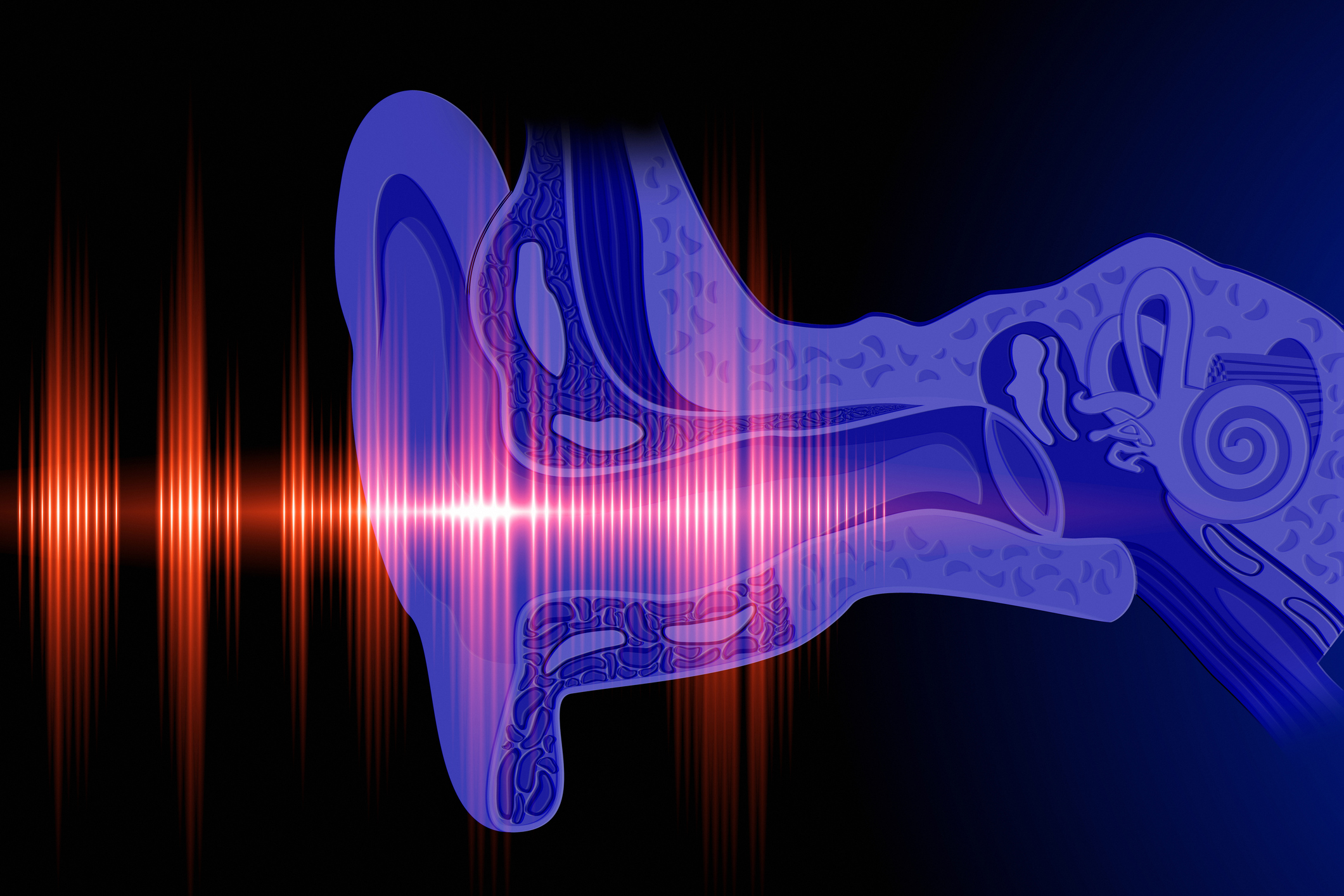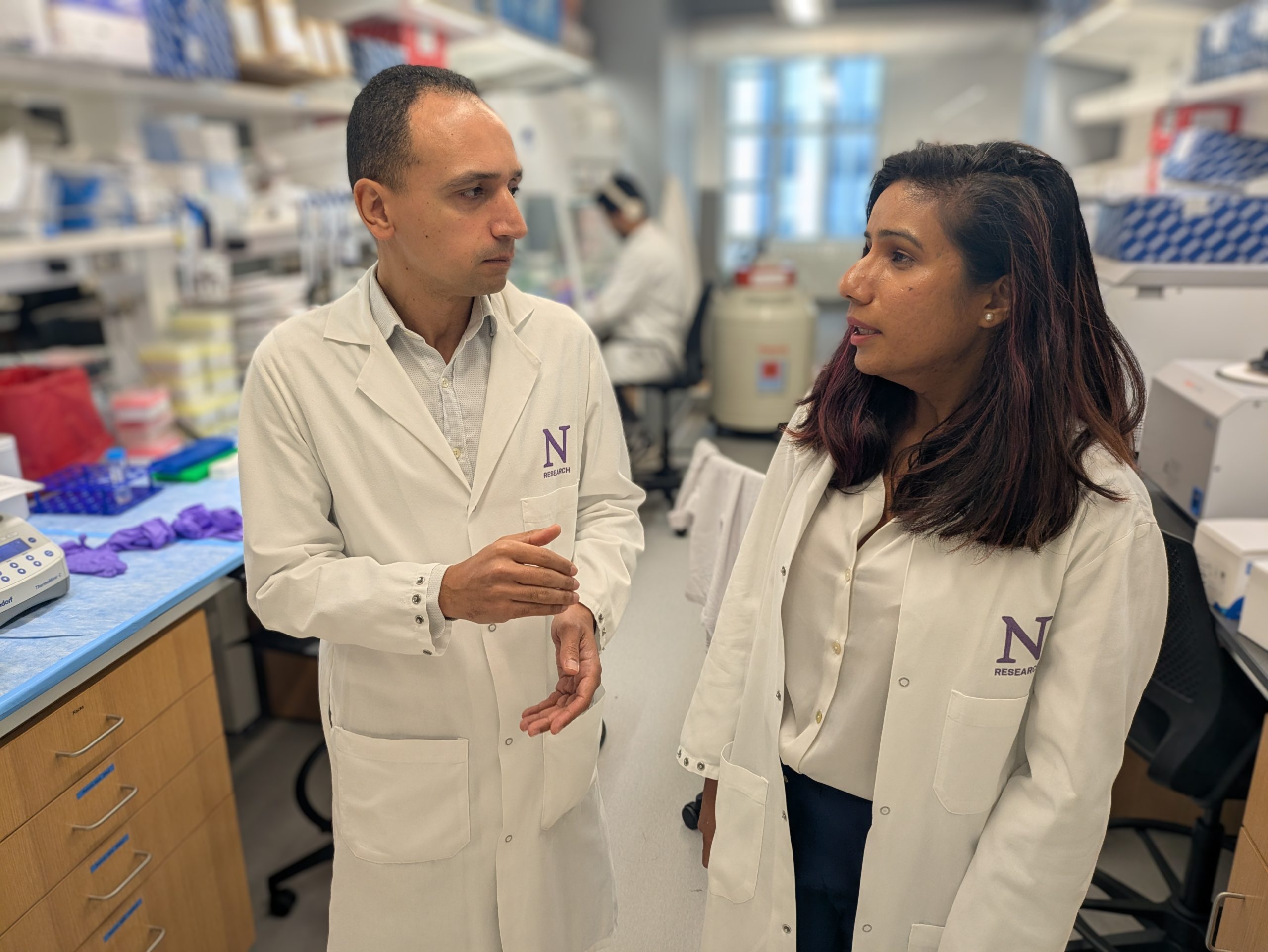-

Les Turner Symposium on ALS Celebrates Advancements
Northwestern scientists, clinicians and people living with ALS gathered to learn about the latest research and celebrate advancements in patient care during the 15th annual Les Turner Symposium on ALS held at Northwestern Memorial Hospital on November 3.
-

Understanding How Hearing Organs Develop
Northwestern Medicine scientists have uncovered how a specific type of cell in the inner ear plays a commanding role in shaping the cellular landscape of the organ responsible for hearing, according to a study published in Science Advances.
-

Mapping How Children Receive Emergency Care in the U.S.
A Northwestern Medicine-led study has established the first pediatric-specific atlas of acute care regions across the United States, offering the clearest picture of how children access emergency and inpatient services to date, according to the study published in JAMA Pediatrics.
-

New Antibody Therapy Reawakens Immune System to Fight Pancreatic Cancer
A new study shows that pancreatic tumors use a sugar-based disguise to hide from the immune system, and Northwestern scientists have also created an antibody therapy that blocks the “don’t-attack” signal.
-

Symposium Showcases Research and Collaboration
Feinberg students, trainees, faculty and members from partner institutions shared research on interventions and policies aimed at advancing equitable healthcare on Oct. 14.
-

A New Clue to ALS and FTD: Faulty Protein Disrupts Brain’s ‘Brake’ System
A new Northwestern study has uncovered how a key disease protein drives overactive nerve cells in neurodegenerative diseases like ALS and frontotemporal dementia.
-

Study Identifies Gene Linked to Rare Ciliopathy Disorders
A Northwestern Medicine-led study has identified mutations in the gene CEP76 as a new cause of ciliopathies, shedding light on a complex group of disorders that affect multiple body systems, according to a study published in Science Advances.
-

Transcription Factor Drives Chemotherapy Resistance in Ovarian Cancer
Northwestern Medicine scientists have discovered how a specific transcription factor promotes genetic reprogramming and chemotherapy resistance in ovarian cancer cells, findings that may inform new targeted treatment approaches that inhibit this process and improve patient outcomes, according to a recent study published in The Journal of Clinical Investigation.
-

Novel Molecular Mechanisms Shape Neuron Identity
A recent study led by Tiffany Schmidt, PhD, has discovered previously unknown cellular mechanisms that shape neuron identity in retinal cells, findings that may improve the understanding of brain circuitry and disease.
-

Measuring the Severity of Debilitating Skin Disorders
A new clinical tool may improve how physicians assess the severity of a painful and often debilitating skin disorder, according to a study recently published in JAMA Dermatology.
-

Uncovering New Therapeutic Targets for Cancer Mutations
A team of Northwestern investigators has discovered novel molecular underpinnings of a common oncogenic mutation in cancer, findings that may inform the development of new therapeutic strategies, according to findings published in Nature Chemical Biology.
-

Obesity Drugs Regulate Neural Systems to Curb Appetite
Lisa Beutler, MD, PhD, assistant professor of Medicine in the Division of Endocrinology, Metabolism and Molecular Medicine, was senior author of the study published in The Journal of Clinical Investigation.
-

New Study Gives Answers, Drug Targets for Chronic Lung-transplant Rejection
A new Northwestern Medicine study has found that, following transplant and in chronic disease states, abnormal cells emerge and “conversations” between them drive the development of transplant rejection.
-

Medicaid Billed for More than Half of U.S. Hospital Costs From Gun Injuries
The initial hospital treatment of firearm injuries costed an estimated $7.7 billion between 2016 and 2021, with the largest share falling on urban trauma center hospitals that serve the highest proportion of Medicaid patients, according to a new study.
-

Spearheading Reproductive Science Research
In 1974, Neena Schwartz, PhD, the William Deering Professor of Endocrinology, launched Northwestern’s Program for Reproductive Research to catalyze reproductive biology research and collaboration across the university.
-

Bass Elected to the National Academy of Medicine
Joseph Bass, MD, PhD, the Charles F. Kettering Professor of Medicine, has been elected to the National Academy of Medicine for his foundational work in expanding the field of circadian mechanisms in metabolic health and disease.
-

Minimally Invasive Surgery May Improve Outcomes in Severe Stroke
Minimally invasive endoscopic surgery may be an effective and safe treatment for patients with intracerebral hemorrhage, the most severe type of stroke, according to results from a recent clinical trial published in JAMA Neurology.
-

Understanding Cellular Impacts of Neurodegeneration
A Northwestern Medicine study has revealed a key mechanism underlying the development of motor neuron diseases, offering new insights into potential treatment options, according to a study published in the Journal of Neuroscience.
-

New Ultrasound Curricula May Improve Residency Education and Training
New consensus-based recommendations on point-of-care ultrasound skills, instructional methods, and assessment strategies could help improve ultrasound education and training nationwide, as detailed in a recent study published in Annals of Internal Medicine.
-

AI Models Predict Sepsis in Children, May Enable Preemptive Care
Northwestern scientists have developed and validated AI models that accurately identify children at high risk for sepsis within 48 hours, so they can receive early preemptive care.





